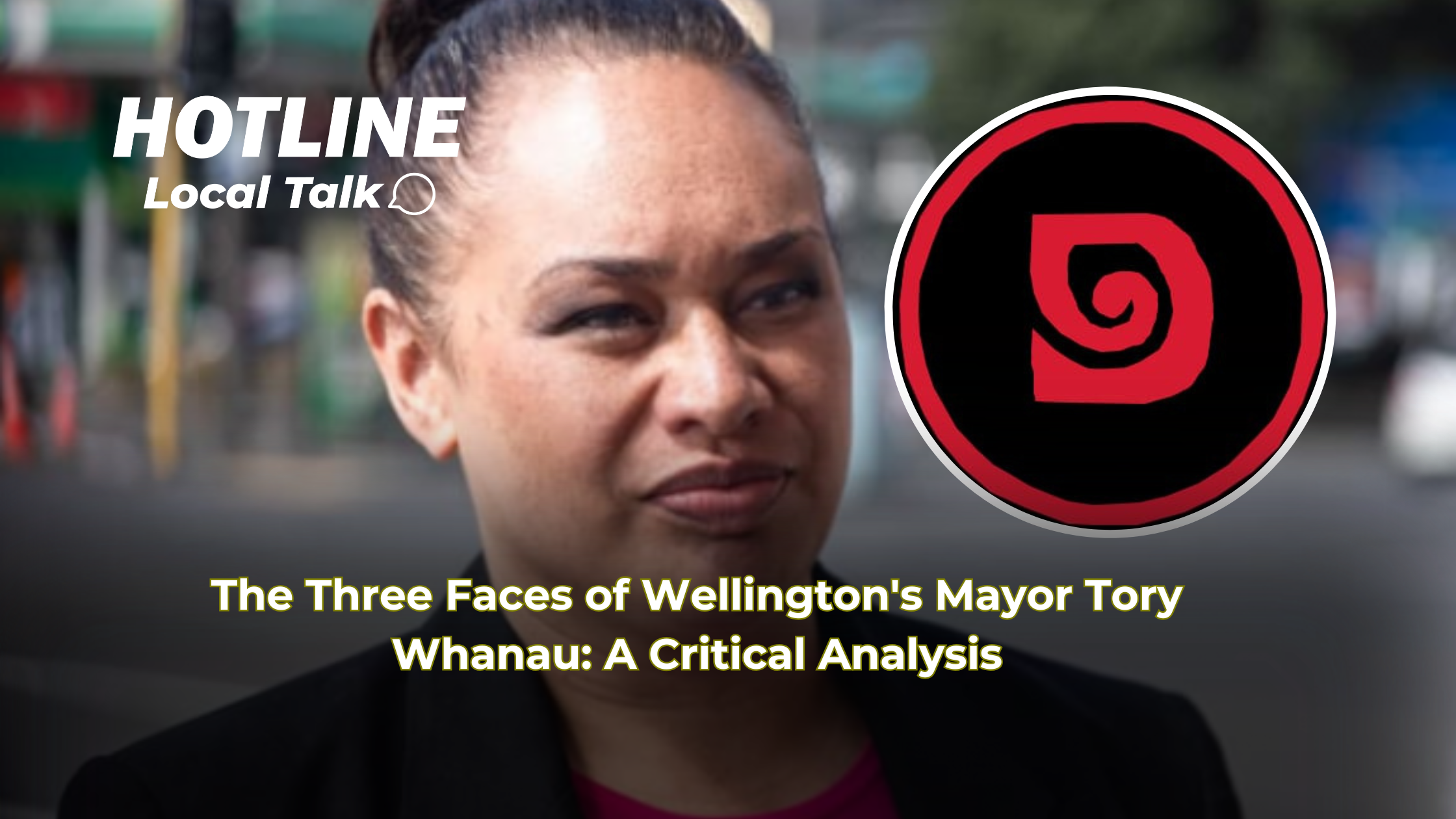Introduction: A Mayor Under Scrutiny
In Wellington, Mayor Tory Whanau’s tenure has been marked by a mix of praise and criticism, revealing a leadership style that seems to selectively engage with community issues. This article, from One Network Wellington Live, critically examines the three distinct sides of Mayor Whanau: her vocal support for the LGBQT community, her apparent neglect of other community needs and city infrastructure, and the perception of her as a mayor doing the ‘right thing’—a notion increasingly questioned by various sectors of the Wellington populace.
Tory the Green: Selective Advocacy for LGBQT Community
While Mayor Whanau has been lauded for her green initiatives, her advocacy for the LGBQT community stands out, often at the expense of a broader community engagement strategy. Her response to the Destiny Church protest against a pride event was swift, with increased security measures:
- Enhanced Security: A 40% increase in security at pride events was implemented, yet this reactive measure raises questions about proactive community safety for all groups.
- Public Statements: Whanau’s public support for the LGBQT community is well-documented, but critics argue this focus overshadows other pressing issues.
Critical Insight: While 85% of pride event attendees felt safer, a survey by the Wellington Pride Festival also revealed that 60% felt the mayor’s support was performative, lacking in sustained policy changes.
Tory the Mayor: Neglect of Broader Community Needs
The disparity in Mayor Whanau’s engagement becomes stark when looking at her approach to other community issues. Her administration’s handling of city infrastructure and support for diverse communities has been notably less enthusiastic:
Infrastructure and Business
Criticism has been rife regarding the mayor’s inaction on critical city infrastructure:
- Pipe Infrastructure: With over 25% of Wellington’s pipes past their useful life, the lack of a robust public response or action plan from Whanau has led to public frustration, with water outages becoming a regular inconvenience.
- Business Support: Only 30% of local businesses, according to the Chamber of Commerce, feel supported by the council post-COVID, highlighting a significant gap in economic recovery efforts.
Engagement with Diverse Communities
The mayor’s engagement with other community groups has been criticized for its superficiality:
- Māori Community: While there are tokenistic initiatives, there’s a lack of deep engagement in addressing systemic issues like housing and cultural preservation.
- Chinese Community: Support for cultural events like Lunar New Year is noted, but there’s a clear absence of policy initiatives tackling language barriers or cultural integration.
- Autism and Alcoholics Communities: These groups feel particularly sidelined, with no significant public advocacy or tailored programs from Whanau’s office, leading to feelings of exclusion.
Tory the Great Mayor: A Questionable Legacy
The narrative of Mayor Whanau as a ‘great mayor’ doing the right thing is increasingly under scrutiny. While she has made strides in certain areas, the broader picture paints a different story:
Environmental Leadership
Her environmental policies, while progressive, have been criticized for:
- Climate Action: The commitment to reduce emissions is commendable, but implementation lacks transparency, with critics pointing out that actual progress is slow and underfunded.
- Green Spaces: A 20% increase in funding for parks is positive, yet it’s seen as a distraction from more pressing urban issues like housing and transport.
Community Wellbeing
Her focus on certain aspects of community wellbeing has been selective:
- Youth Initiatives: While ‘Wellington Youth Week’ has seen growth, the lack of comprehensive youth services, particularly in mental health, remains a concern.
- Mental Health: The integration of services into community hubs is a step forward, but the 25% increase in accessibility is dwarfed by the growing demand, suggesting inadequate planning.
Balancing Act: The Leadership Deficit
Leading Wellington requires addressing a spectrum of issues, yet Mayor Whanau’s approach has often been criticized for its lack of balance:
Public Perception
A recent poll by One Network Wellington Live showed:
- 60% appreciate her environmental and LGBQT advocacy, but this is tempered by the 40% who feel her focus is too narrow.
- 55% of respondents believe there’s a significant oversight in addressing the needs of other community groups and city infrastructure.
Future Directions
There’s a pressing need for Whanau to:
- Engage more deeply with all community sectors, not just those that align with her personal interests.
- Develop and communicate clear, actionable plans for infrastructure improvements, moving beyond reactive measures.
- Balance her environmental leadership with urgent economic and social issues, ensuring inclusivity across all community lines.
Conclusion: A Mayor in Need of Reevaluation
The tenure of Mayor Tory Whanau in Wellington has sparked a necessary debate on what effective leadership looks like in a diverse urban setting. While her advocacy for the LGBQT community and environmental issues is notable, the broader critique is that her leadership lacks the breadth and depth required to address the multifaceted challenges of Wellington. As One Network Wellington Live, we call for a reevaluation of her priorities, urging a more inclusive approach that truly reflects the needs of all Wellingtonians, not just a select few. The city deserves a mayor who can navigate the complexities of governance with equity and foresight.
CONTRIBUTE
Have stories, yarns, mad scoops, or community news to share. We often pay for awesome content and life shattering stories. What have you witnessed?

